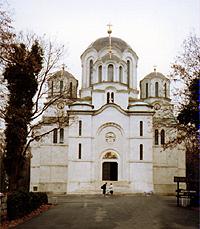Check this out.
The Blue letters are For nuclear energy.
The Green letters are Against nuclear energy.
BBC 10/17/2005
Analysis: Is nuclear power the answer?
With Prime Minister Tony Blair calling for an "open-minded" debate on the future of nuclear power in the UK, the BBC's Alex Kirby explores the pros and cons of atomic energy.
Nuclear power looks as if it should be the answer to all our energy conundrums, and perhaps even to climate change.
It provides a steady stream of energy, and does not depend on hydrocarbon supplies from unstable regimes.
It is the nearest thing we have to a non-polluting energy source, apart from natural renewables.
But it still engenders massive distrust, so much that many people say it can never be part of the way to avoid a disastrously warming world.



 Ecclesiastical (church) structure was very important in all medieval European kingdoms. In Eastern Europe, where the type of Christianity known as Eastern Orthodoxy was predominant (in contrast to Roman Catholicism and later Protestantism in Western Europe), churches are organized along national lines. That is why, for example, there are Russian, Greek, Bulgarian, and other Orthodox churches. The Serbs founded their own independent Christian church in 1219. At its head was a man known as the patriarch. Today, the first patriarch is known and revered as Saint Sava. The headquarters of the church soon came to be located in Pec, one of the major cit ies of today's Kosovo.
Ecclesiastical (church) structure was very important in all medieval European kingdoms. In Eastern Europe, where the type of Christianity known as Eastern Orthodoxy was predominant (in contrast to Roman Catholicism and later Protestantism in Western Europe), churches are organized along national lines. That is why, for example, there are Russian, Greek, Bulgarian, and other Orthodox churches. The Serbs founded their own independent Christian church in 1219. At its head was a man known as the patriarch. Today, the first patriarch is known and revered as Saint Sava. The headquarters of the church soon came to be located in Pec, one of the major cit ies of today's Kosovo. 

